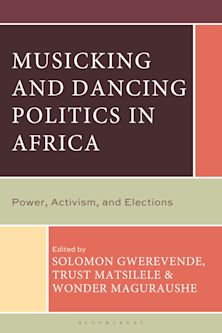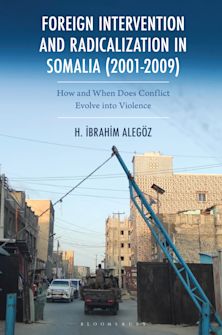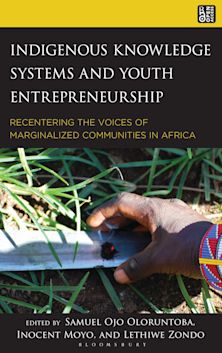- Home
- ACADEMIC
- Politics & International Relations
- African Politics
- Countering Violent Extremism in Kenya
Countering Violent Extremism in Kenya
Community, State, and Security Perspectives
Countering Violent Extremism in Kenya
Community, State, and Security Perspectives
You must sign in to add this item to your wishlist. Please sign in or create an account
Description
Before the rise of the Al-Shabaab, Eastern Africa was home to different organizational nodes of the Al-Qaeda network. Al-Qaeda was responsible for many threats, of which include the August 7, 1998, bombings in Kenya and Tanzania. As terrorism threats have evolved over the years, countermeasures have continued to do the same. Countering Violent Extremism in Kenya: Community, State, and Security Perspectives by John Mwangi Githigaro explores Kenya’s historical experiences with terrorism in the pre- and post 9/11 periods as a lens to situate how different stakeholders present the threats of extremism and the associated countermeasures they consider as valuable. The stakeholders presented throughout this book include: security actors, society organizations, academics, and community members. Through extended ethnographic research and fieldwork collected from focus groups within Nairobi and Mombasa between 2016 and 2022, Githigaro offers an opportunity to observe the evolution of counterterrorism interventions in Kenya and the dilemmas this has created around primarily state-society relations, an exploration of how different stakeholders perceive the efficacy of counterterrorism measures, and the appraisal of counterterrorism initiative (CT) interventions that render ongoing CVE interventions less effective.
Table of Contents
Introduction: Context and Methodology
Chapter 1: Kenya’s Experiences with Terrorism in the Pre and Post 9-11
Chapter 2: Security Officials’ Perception of Extremism and Counter-Violent Extremism in Kenya
Chapter 3: Community Perspectives on Extremism and Violent Extremism in Nairobi
Chapter 4: Community Perspectives on Countering Violent Extremism in Mombasa County
Chapter 5: Post Script: Dilemmas in Implementing CT and CVE Interventions in Kenya
Conclusion
References
Author the Author
Product details
| Published | Dec 06 2023 |
|---|---|
| Format | Ebook (PDF) |
| Edition | 1st |
| Extent | 140 |
| ISBN | 9798216296454 |
| Imprint | Lexington Books |
| Illustrations | 2 Tables |
| Publisher | Bloomsbury Publishing |
About the contributors
Reviews
-
This slender volume analyzes the changing landscape of violent extremism (VE) and countervailing efforts in Kenya, arguably Africa’s focal point of this global affliction. Nairobi-based independent scholar Githigaro investigates how different stakeholders—security actors, society, scholars, and local communities—experience and perceive extremism and its countermeasures. He bases his study on several years of fieldwork and interviews in Nairobi and Mombasa, informed by existing literature and complementary theories of political socialization, securitization, and social movements. Kenya’s concerted efforts to address VE have evolved from its initial, state-centric, “hard power” strategies to incorporate community-focused, “soft power” approaches. Githigaro identifies various flaws, missteps, and shortcomings that continue to hinder public trust and cooperation and offers some broad recommendations for enhancing community engagement. By highlighting the various voices and discourses surrounding VE at multiple levels and in different social contexts, his work reinforces the current trend toward more holistic, nuanced, and sensitive assessments and policy responses. Recommended. Advanced undergraduates through faculty; professionals.
Choice Reviews
-
Africa has become the new battleground for jihadists. Understanding why this is so, is crucial if one seeks to defeat the menace of Islamist terrorism. In this groundbreaking study, John Mwangi Githigaro examines pathways to extremism and counterterrorism in Kenya from the perspective of both the state and local communities. Theoretically anchored and empirically sound with extensive primary interviews conducted to support the extensive secondary works consulted, this book is a must-read for academics and policymakers.
Hussein Solomon, University of the Free State
-
The normative and empirical issues raised in this impressive book, significantly contribute to the academic and policy literature on stake holders' perceptions of violent extremism threats and the potential of community-based countering violent extremism approaches in Kenya. This book is highly suitable for any audience interested in broadening their knowledge of countering violent extremism in the Global South.
Oscar Gakuo Mwangi, University of Rwanda

ONLINE RESOURCES
Bloomsbury Collections
This book is available on Bloomsbury Collections where your library has access.



































